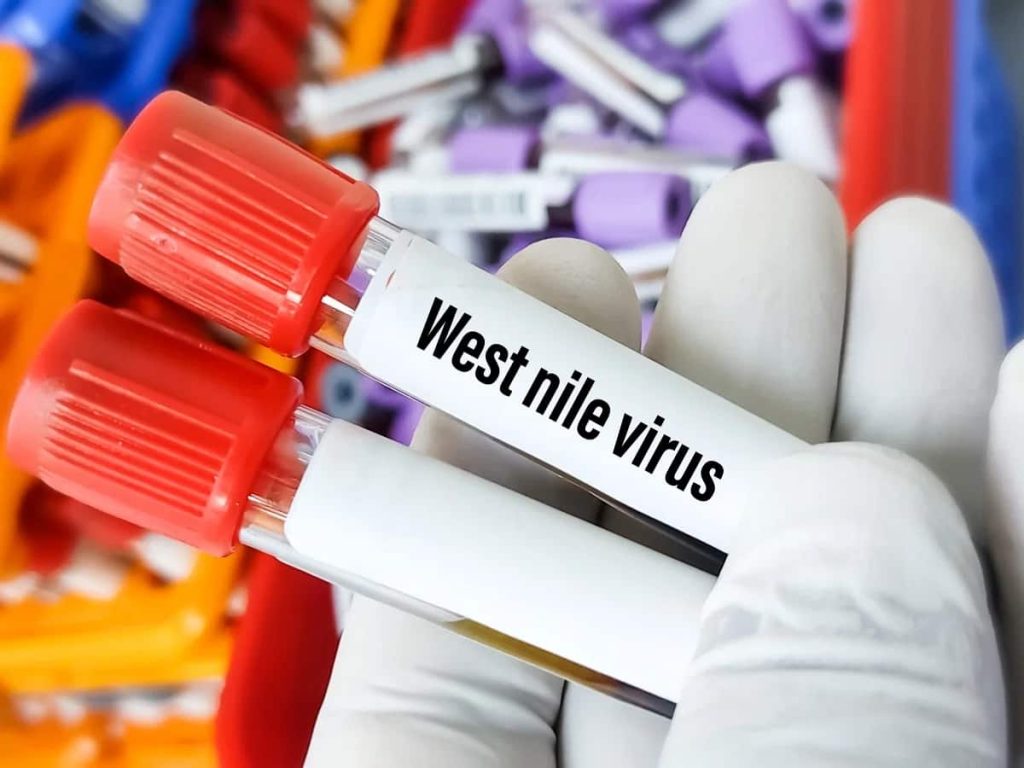West Nile Virus (WNV) is a mosquito-borne illness that can cause severe neurological complications in some individuals. First identified in Uganda in 1937, the virus has since spread to various parts of the world, including Africa, Europe, Asia, Australia, and North America. Understanding its transmission, symptoms, and preventative measures is vital for protecting your health.

West Nile Virus: Understanding the Basics
West Nile Virus is a single-stranded RNA virus belonging to the Flavivirus genus in the Flaviviridae family. It primarily cycles between birds and mosquitoes, with humans and other mammals serving as accidental hosts.
West Nile Virus Symptoms
Most individuals (about 80%) infected with West Nile virus do not develop any noticeable symptoms. Those who do experience symptoms might exhibit:
- Fever
- Headache
- Body aches
- Joint pain
- Vomiting
- Diarrhea
- Fatigue
- Skin rash
In rare cases (about 1%), WNV can cause serious neurological illnesses, including:
- Encephalitis (inflammation of the brain)
- Meningitis (inflammation of the membranes surrounding the brain and spinal cord)
- Acute flaccid paralysis (sudden weakness in the limbs)
These severe complications are more likely to occur in individuals over 60 years of age or those with weakened immune systems.
West Nile Virus Transmission
The primary route of West Nile virus transmission is through the bite of an infected mosquito. Several mosquito species can transmit the virus, primarily those belonging to the Culex genus. These mosquitoes acquire the virus by feeding on infected birds.
While mosquito bites are the primary mode of transmission, there have been rare documented cases of WNV infection through:
- Organ transplantation
- Blood transfusion
- Mother-to-child transmission during pregnancy or breastfeeding
- Laboratory exposure
West Nile Virus: Prevention is Key
Preventing West Nile virus infection focuses on avoiding mosquito bites:
1. Mosquito Control:
- Eliminate breeding sites: Remove any standing water around your home (e.g., in buckets, flowerpots, tires) to prevent mosquito breeding.
- Use mosquito repellents: Apply EPA-registered insect repellents containing DEET, picaridin, or IR3535 to exposed skin when outdoors.
- Wear protective clothing: When in areas with mosquitoes, wear long sleeves, long pants, and socks to cover your skin.
- Install window and door screens: Keep mosquitoes out of your home by installing or repairing screens on windows and doors.
2. Reduce Mosquito Exposure:
- Limit outdoor activities during dawn and dusk: Mosquitoes are most active during these times.
- Use mosquito nets: If sleeping outdoors or in an area with high mosquito activity, use mosquito netting.
MedicW Recommendations: Medical Supplies for West Nile Virus Protection:
- Insect Repellents: MedicW offers a variety of DEET, picaridin, and IR3535-based mosquito repellents formulated for long-lasting protection against mosquito bites.
- Protective Apparel: Providing lightweight, long-sleeved clothing ideal for individuals in high-risk areas.
- Mosquito Nets: MedicW supplies insecticide-treated mosquito nets for both indoor and outdoor use.
- Sampling Swabs: For diagnostic purposes, MedicW offers sterile sampling swabs for healthcare professionals collecting blood samples for WNV testing.
West Nile Virus Treatment
Currently, there is no specific antiviral treatment for West Nile virus infection. Treatment primarily focuses on supportive care to relieve symptoms and manage complications:
- Rest: Getting adequate rest allows your body to fight off the infection.
- Fluids: Stay hydrated to prevent dehydration.
- Over-the-counter pain relievers: Medications like acetaminophen or ibuprofen can help reduce fever and alleviate aches and pains.
- Hospitalization: Severe cases, especially those involving neurological complications, may require hospitalization for intravenous fluids, respiratory support, and other medical interventions.
West Nile Virus: FAQs
1. How common is West Nile virus?
Answer: While WNV is present in many regions, most infections are mild or asymptomatic. Severe cases, especially those leading to neurological complications, are relatively rare.
2. Can West Nile virus be fatal?
Answer: Yes, West Nile virus can be fatal, but the fatality rate is low, typically occurring in individuals with pre-existing health conditions or compromised immune systems.
3. Are there any long-term effects of West Nile virus infection?
Answer: Some individuals who develop severe West Nile virus infections may experience long-term neurological problems, including muscle weakness, fatigue, memory issues, and depression.
4. Who is at higher risk for severe West Nile virus illness?
Answer: Individuals over the age of 60, and those with weakened immune systems (e.g., due to organ transplantation, HIV/AIDS, or cancer treatment) are at increased risk of developing serious WNV complications.
5. How can I protect myself from West Nile virus when traveling?
Answer: If you are traveling to an area where WNV is present, consult your doctor or a travel clinic about recommendations for mosquito bite prevention, including appropriate repellents and clothing choices.
6. Can I donate blood if I’ve had West Nile virus?
Answer: You may be deferred from donating blood for a period of time after recovering from WNV infection. Check with your local blood donation center for specific guidelines.
West Nile Virus: Conclusion
West Nile virus is a mosquito-borne illness that poses a health risk, especially for vulnerable individuals. Understanding the virus’s transmission, symptoms, and preventative measures is crucial for minimizing your risk of infection.
MedicW is dedicated to providing high-quality medical consumables, including insect repellents, protective apparel, mosquito nets, and diagnostic tools, that play a crucial role in supporting public health initiatives to combat mosquito-borne illnesses like West Nile Virus.
We urge you to:
- Prioritize mosquito bite prevention.
- Seek medical care if you develop symptoms after a mosquito bite.
- Stay informed about WNV activity in your area through your local health department.
By working together to raise awareness and implement preventative measures, we can effectively reduce the burden of West Nile virus in our communities.
MedicW is committed to being your trusted partner in providing high-quality medical consumables. Explore our comprehensive range of products and discover how we can support your healthcare needs. Visit us at medicw.com or contact our team at [email protected].
Link to this article: West Nile Virus: Protecting Yourself From a Mosquito-Borne Threat
